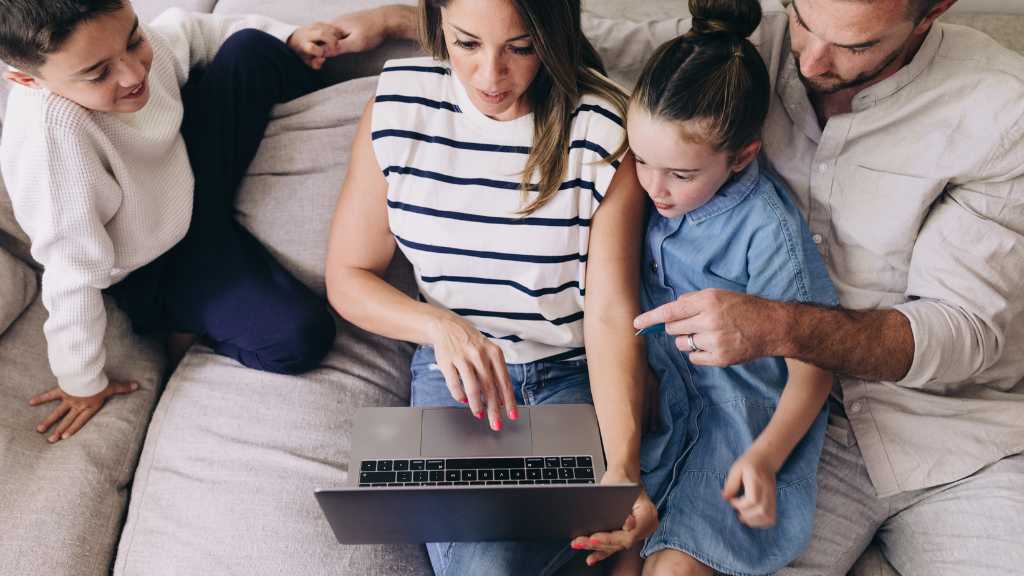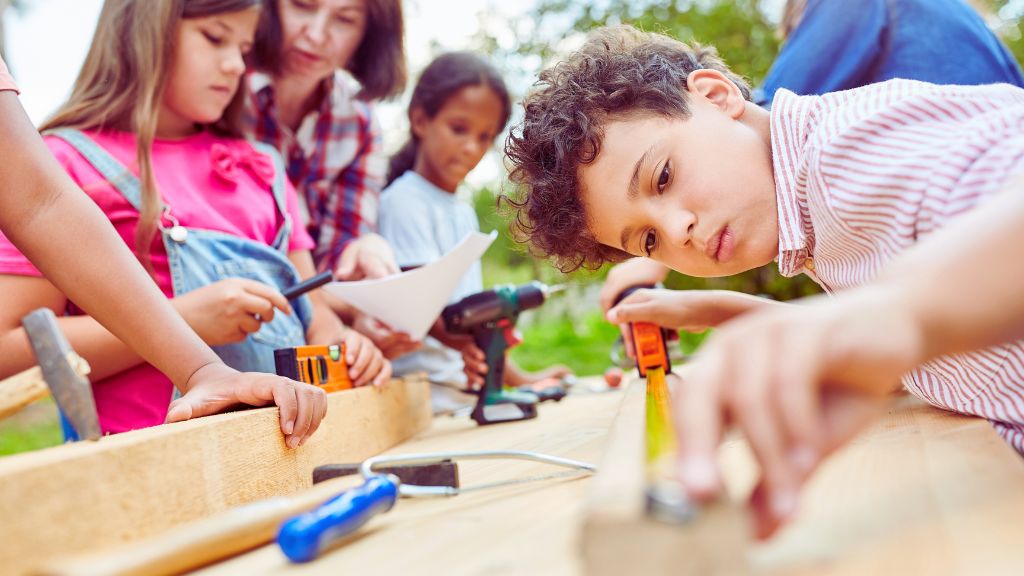What do autistic people struggle with at Christmas?
The holiday season, a time of great anticipation and warmth amidst the chill of winter, can present unique challenges for individuals within the autism community. The question often arises, “What do autistic people struggle with at Christmas?” While the experiences of individuals with autism vary, understanding everyday struggles can significantly enhance their holiday experience.
Navigating holidays with autism often involves dealing with changes in routine, increased social demands, heightened expectations, diverse sensory experiences, and exposure to new activities and foods. Understanding and accommodating these potential stressors is crucial to creating an autism-friendly holiday environment.
At ABA Centers of New Jersey, we firmly believe that holidays and autism coexist harmoniously. It’s neither fair nor practical to exclude individuals with autism and their families from holiday festivities, especially given the frequency of seasonal symbols and celebrations in bigger cities like Peterson and Hoboken. However, it requires careful planning and thoughtful strategies to ensure the holiday season is enjoyable and inclusive.
This guide from ABA Centers of New Jersey aims to provide practical tips for managing the intersection of autism and Christmas. With the right approach, we can help create a festive season that not only respects and accommodates the needs of those with autism but also allows them to participate and enjoy the holiday spirit fully.
Approaching the Holidays with Autism
Prepare for the holidays with autism days or even weeks in advance to prevent sudden changes from surprising your child and causing stress. Effective planning and communication will be your best allies in managing holidays and autism. Consider the following tips to handle changes in the holiday break routine:
Before the Holiday Break:
- Communicate the Meaning of School Breaks: If your child attends school or kindergarten, explaining a holiday break can be crucial for understanding holidays with autism. Start preparing your child for this change in routine by likening it to an extended weekend and assure them that they’ll return to school after a few weeks.
- Lean on Your ABA Team for Support: Maintaining consistency and structure during the holidays with autism can help manage school breaks and adapt to new holiday routines. It’s crucial to continue Applied Behavior Analysis (ABA) therapy sessions during winter break to preserve your child’s progress and instill a sense of routine. Moreover, you can request your child’s ABA therapist to reinforce essential skills for smoothly navigating the holiday season and teach coping strategies for adjusting to routine changes and unfamiliar activities.
- Employ Countdowns and Reminders: Start preparing your child for the holiday break a few weeks in advance with a countdown calendar. Visual cues can effectively help children with autism anticipate changes in their routines.
During the Holidays:
- Establish Structure and Routine: Routines, consistency, and structure are highly beneficial for individuals with autism. The University of Nebraska suggests that rules and routines foster a predictable environment, which can help those with autism feel more secure. Structure promotes participation in activities and prevents problematic behavior. Navigating the holidays with autism entails crafting a holiday schedule encompassing family activities, celebrations, and your child’s favorite pastimes like art, reading, playing, or watching TV.
- Incorporate Plenty of Breaks: While a schedule and routine significantly enhance your child’s daily experiences during the time off from school, breaks are also crucial. They help your child self-regulate, manage emotions, and cope with sensory discomfort. If your child will be spending time away from home or participating in holiday activities, schedule periods to rest in a quiet area.
- Explore Autism-Friendly Holiday Activities: As acceptance and understanding of autism grow, places like Cherry Hill, Morristown, and Princeton offer more autism-friendly holiday activities. Websites like Things to Do in New Jersey and Be Like Buddy provide lists of sensory-friendly activities across various locations in New Jersey. Autism-friendly holiday activities present an ideal opportunity to embrace the intersection of holidays and autism, celebrating the season in a way that respects and accommodates your child’s needs. Furthermore, numerous Santa-themed activities are available, allowing you to enjoy the festive synergy of autism and Christmas.
- Maintain Learning Activities: It’s beneficial to continue with ABA therapies during the holidays with autism to ease the transition back to school after the New Year. These sessions allow ABA therapists to promote your child’s learning of vital skills such as reading and language, which will aid in the smooth resumption of their regular school routine. Moreover, you can bolster their learning by utilizing some apps featured in Autism Parenting Magazine.
Holidays and Autism: Navigating Celebrations with Family and Friends
While the festive gatherings with friends and family are often the highlights of Christmas and holiday celebrations, they can also be a source of stress and uncertainty for both parents and children with autism. Here are a few strategies that can help ensure that holidays with autism are enjoyable for everyone:
- Keep Your Child’s Favorite Items Accessible: Having familiar objects such as books, headphones, a tablet, fidget spinners, a comforting blanket, and favorite snacks on hand can help soothe and redirect your child’s attention during moments of stress. Establish a signal word or code your child can use to indicate when they need a break.
- Avoid Sensory Overload: Flashing lights, vibrant ornaments, and loud decorations can be overwhelming for a child with autism. If you’re planning to celebrate at an external venue and have limited control over these elements, consider visiting the location in advance to ensure that the holiday decor is sensory-friendly.
- Create a Photo Album of Your Guests: Preparation and communication are pivotal in ensuring harmonious holidays with autism. If you’re planning to host visitors or visit other homes, preparing your child to interact with unfamiliar faces can enhance the enjoyment of the gathering. Consider creating a photo album featuring each guest, complete with their name, relationship, and an interesting fact to spark your child’s motivation to meet them.
- Prepare Your Child for Gift Exchanges: While the excitement of presents is a hallmark for many during Christmas, handling gift exchanges with autism requires some forethought and preparation. Visual aids can help prepare your child for the experience of receiving and opening gifts, thereby reducing anxiety associated with the unknown. Social stories are invaluable in explaining to your child the concept of gratitude when receiving a gift and the process of giving a gift. If your child exhibits heightened enthusiasm about presents and frequently discusses them, consider setting aside five minutes daily to discuss the toys they hope to receive. Practicing opening gifts ahead of time can also aid in teaching your child how to unwrap a present and prepare them for the fact that others will be doing the same with their gifts.
ABA Centers of New Jersey Wishes You Autism-Friendly Holidays!
Creating memorable holidays with autism for the entire family might seem like an overwhelming task, but remember that ABA therapy is a powerful tool for providing support during these times. At ABA Centers of New Jersey, we stand ready to provide the support you require, regardless of your location in Northern, Southern, or Central New Jersey. Our commitment extends beyond the winter holidays, ensuring you receive the help you need all year round!
You can call us at (855) 957-1892 or submit your concerns via the contact form on our website. An autism-friendly holiday is attainable through your efforts and with the unwavering support of the ABA Centers of New Jersey team.








